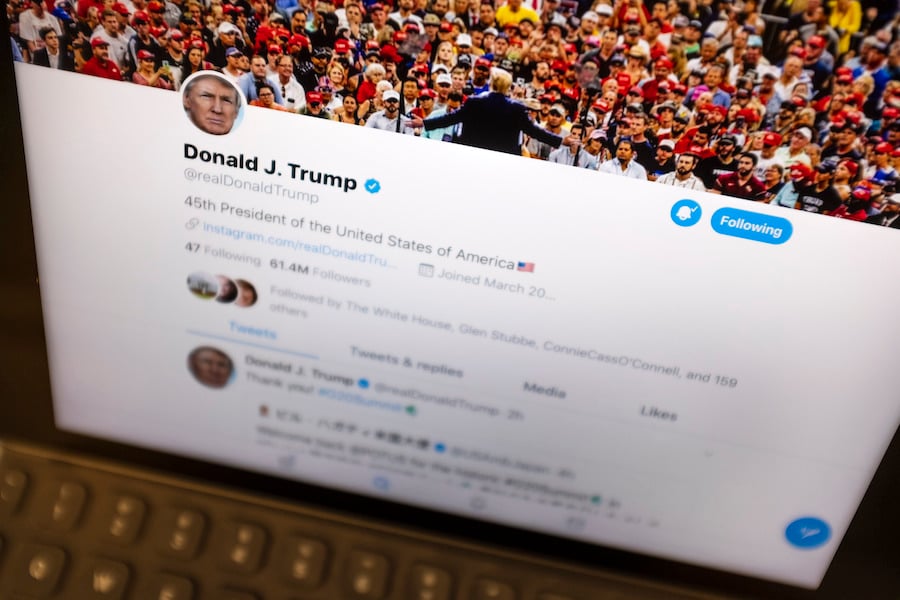MANHATTAN (CN) — The Second Circuit refused to convene the full court on Monday to reconsider what the majority overwhelmingly called a straightforward application of First Amendment law: a ruling forbidding President Donald Trump from blocking his critics on Twitter.
Only two members of the court argued for another hearing. Both are Trump appointees.
U.S. Circuit Judge Barrington Parker, who was appointed by President George W. Bush, sounded off meanwhile on why the case is closed.
“The decision is unusual only in that it involves Twitter, a relatively new form of public, interactive communication, and the president,” Parker wrote. “However, the opinion is consistent with every precedent of this court, and the dissent does not demonstrate otherwise.”
In the panel ruling last July, it was Parker who wrote the lead opinion that said government officials must make themselves open to contentious debate on social media.
“This debate, as uncomfortable and as unpleasant as it frequently may be, is nonetheless a good thing,” Parker wrote in 2019. “In resolving this appeal, we remind the litigants and the public that if the First Amendment means anything, it means that the best response to disfavored speech on matters of public concern is more speech, not less.”
Columbia University’s Knight First Amendment Institute, which filed the original lawsuit on behalf of seven people blocked by Trump in 2017, applauded the ruling.
“The ruling is an important affirmation of core First Amendment principles as applied to new communications technology,” the group’s executive director Jameel Jaffer wrote in a statement.
Represented by the Department of Justice, Trump has struggled to differentiate his so-called personal account from an official one. Trump claims that @realDonaldTrump belongs to him alone, even though he perpetually makes official pronouncements from that account.
The Second Circuit’s majority cited Trump’s then-recent saber-rattling tweets against Iran to show any distinction between the two have been erased.
“These Media Posts will serve as notification to the United States Congress that should Iran strike any U.S. person or target, the United States will quickly & full strike back in a disproportionate manner,” Trump tweeted on Jan. 5. “Such legal notice is not required, but is given nonetheless!”
Using disproportionate force is a war crime, and treating that threat as an official notice undermined Trump’s appeal.
Trump-appointed U.S. Circuit Judges Michael Park and Richard Sullivan on Monday were the only jurists who took any supposed line between the two seriously.
“Because Twitter is privately owned and controlled, a public official’s use of its features involves no exercise of state authority,” Park wrote in a 14-page dissent. “Twitter, Inc. — not President Trump or the United States — controls the platform and regulates its use for everyone.”
The Knight First Amendment Institute’s senior attorney Katie Fallow emphasized that the ruling barring Trump from blocking his critics applies to all public officials.
“This case should send a clear message to other public officials tempted to block critics from social media accounts used for official purposes,” she said in a statement.
The Justice Department did not immediately respond to an email requesting comment. U.S. Circuit Judges Debra Ann Livingston and Susan Carney did not participate in the consideration or decision of the en banc petition.
Subscribe to Closing Arguments
Sign up for new weekly newsletter Closing Arguments to get the latest about ongoing trials, major litigation and hot cases and rulings in courthouses around the U.S. and the world.









